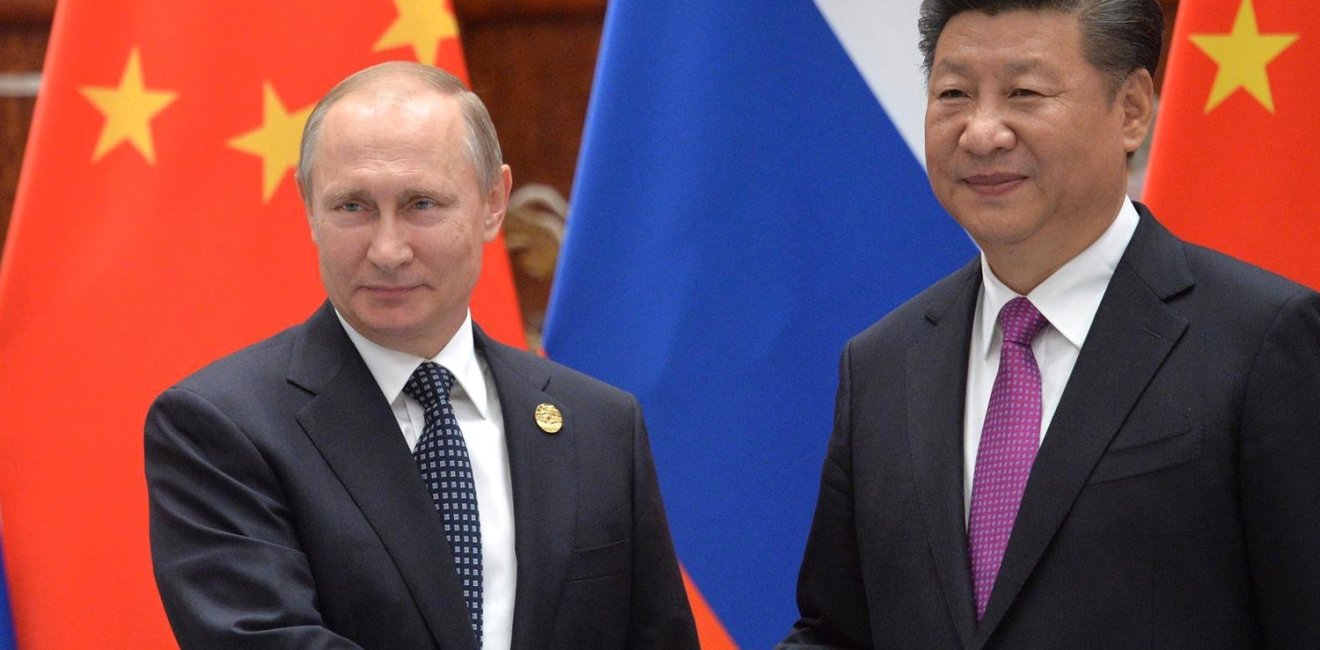Ascendance of China and Russia Marks Loss of American Leverage
President Trump's isolationism "could hasten the demise of longstanding American influence," writes Jane Harman.
President Trump's isolationism "could hasten the demise of longstanding American influence," writes Jane Harman.

After 17 years of putting counterterrorism at the top of the U.S. threat matrix, the Trump administration’s new national defense strategy refers to Russia and China as the “central challenge” facing the U.S. Geopolitics is back. But, perversely, in recent weeks we have witnessed the steady self-inflicted erosion of U.S. leverage vis-à-vis both nations. Just look at China’s immediate imposition of retaliatory tariffs or Russia’s move on Thursday to officially invite Kim Jong Un to Moscow in September. Neither state seems intimidated, nor does either have much reason to be.
China’s economic influence in East Asia, bolstered by the success of the Asian Infrastructure Investment Bank, which the United States decided not to join, and the expansion of its Belt and Road Initiative, has grown, enhancing Chinese engagement in the region. U.S withdrawal from the Trans Pacific Partnership in 2017, paired with our exit from the Paris Climate Accord and the JCPOA, signals clear disengagement from global and regional agreements. Although China was not a direct party in the Singapore summit earlier this month, China has already made its involvement clear, calling for a second trilateral summit between China, Japan and South Korea later this year.
In the aftermath of the summit, China stands to benefit both from a potentially imminent economic opening with North Korea and from a possible reduction of U.S. forces on the Korean Peninsula. Indeed, this week marks the third meeting between Kim and President Xi in as many months. The United States, by contrast, has watched our already diminishing leverage fade further away, as multifaceted sanctions are slipping, and escalating threats of increased tariffs are greater threats to U.S. companies and stock exchanges than to China.
As the Wilson Center celebrates its 50th anniversary, it is worthwhile to reflect on President Wilson’s commitment to the alliance system. As he said in his address to Congress in 1918, “We cannot be separated in interest or divided in purpose. We stand together until the end.”
President Trump’s withdrawal from major international agreements, his failure to raise concerns about humanitarian issues with Kim, and his willingness to abdicate longstanding U.S. military commitments, without extracting concessions, seems to shrink U.S. leverage in East Asia, and could hasten the demise of longstanding American influence there.
Days after the summit’s conclusion, Russian oil giant Gazprom initiated new talks with South Korea about the construction of a gas pipeline that would run through North Korea. President Moon is traveling to Moscow this week for continued discussions. Russian Foreign Minister Sergey Lavrov has already met with the North Koreans, and the Kremlin has extended an offer for Kim to visit Vladimir Putin this fall.
While the Russian relationship with the Korean Peninsula seems to be blooming, the same cannot be said for the U.S.-European alliance, which has oft been mobilized to counter Russian aggression. Since the days of the Cold War, American leverage against Russia has been collective, dependent on the bonds of the Atlantic Alliance. If the G-7 and its aftermath are any indication, this sacred alliance is also fast fraying. The increasing alienation of our European and Canadian counterparts risks isolating the United States as challenges mount to the international nonproliferation regime and trading norms.
The recent mocking of allied leaders on Twitter, our exit from the Iran deal, and President Trump’s seeming embrace of authoritarian leaders is unsettling. It opens the door for other states to seize the mantle of global leadership. At this point, does there exist a groundswell against the ascendance of China and Russia? Both are adding to Kim’s legitimacy and expanding their spheres of influence in Asia, Europe and the Middle East.
As the Wilson Center celebrates its 50th anniversary, it is worthwhile to reflect on President Wilson’s commitment to the alliance system. As he said in his address to Congress in 1918, “We cannot be separated in interest or divided in purpose. We stand together until the end.” Ironically, a century later we are pursuing a policy of global disengagement which reduces our chances to prevail against the two countries that our defense analysts consider America’s “key challenges.”
The opinions expressed here are solely those of the author.
This article was originally published in The Hill.




